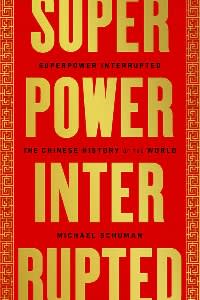 The Covid pandemic provided China with a golden opportunity to expand its global influence, but the regime “blew it,” leaving the world “wide open for America’s return,” says a leading analyst.
The Covid pandemic provided China with a golden opportunity to expand its global influence, but the regime “blew it,” leaving the world “wide open for America’s return,” says a leading analyst.
A recent Pew Research Center global survey revealed that attitudes toward China have drastically darkened in a number of countries, sinking to all-time lows in an array of nations such as Canada, Germany, South Korea, Spain, Sweden, and the United Kingdom, notes MICHAEL SCHUMAN, the author of Superpower Interrupted: The Chinese History of the World and The Miracle: The Epic Story of Asia’s Quest for Wealth.
Xi Jinping himself didn’t fare any better. as a median of 78 percent of respondents said they had little or no confidence that Xi would do the right thing in global affairs, a sharp spike from 61 percent in 2019. In almost all of the 14 countries included in the report, negative opinion of Xi reached the highest levels on record, he writes for The Atlantic.
And an unpopular Xi and his band of angry diplomats have left the world wide open for America’s return, Schuman concludes.
Western countries should work together to prevent China from promoting norms and standards that run counter to Western values and interests, argues Henrik B. L. Larsen, a senior researcher at the Center for Security Studies at the Swiss Federal Institute of Technology, ETH Zürich. Withdrawing from the U.N. institutions is most certainly the wrong strategy to keep Chinese influence at bay. In the Human Rights Council, U.S. reengagement is truly indispensable to prevent the slide of the basic definitions that spill over into the technical areas. The European countries find themselves in a weakened position to stand up for fundamental principles without the United States, he writes for War On The Rocks.
 The influence of China’s totalitarian institutions, such as the Leninist party-state, control of economic “commanding heights”, and a pervasive surveillance state, left intact after four decades of economic reform raise doubts about whether economic modernization can create favorable conditions for democracy in China, according to Claremont McKenna College professor Minxin Pei.
The influence of China’s totalitarian institutions, such as the Leninist party-state, control of economic “commanding heights”, and a pervasive surveillance state, left intact after four decades of economic reform raise doubts about whether economic modernization can create favorable conditions for democracy in China, according to Claremont McKenna College professor Minxin Pei.
These core institutions of totalitarianism have severely limited the political impact of the economic transformation brought about by four decades of reform and integration with the global economy – and paved the way for the potential return of a neo-Stalinist figure such as Xi, he will suggest when he delivers this year’s Lipset lecture, organized by the NED’s International Forum:

Minxin Pei
But the future of democracy in China may not be as bleak as it seems today. The restoration of totalitarian rule will most likely unleash a set of well-known self-destructive dynamics associated with totalitarianism – perpetual purge, personality cult of the dominant ruler, aggressive foreign policy, excessive repression, and incompetent economic management. The revival of totalitarianism under Xi may very likely accelerate the Communist Party’s decline.
Beijing seeks to occupy the high positions in what on the surface may seem like technical agencies, but which, in reality, have significant political ramifications https://t.co/2Q2JkJ3ttE
— War on the Rocks (@WarOnTheRocks) November 19, 2020
The Embassy of Canada and the National Endowment for Democracy present the seventeenth annual Seymour Martin Lipset Lecture on Democracy in the World.
FEATURING
 Dr. Minxin Pei, Pritzker Professor of Government and George R. Roberts Fellow, Claremont McKenna College on TOTALITARIANISM’S LONG DARK SHADOW OVER CHINA
Dr. Minxin Pei, Pritzker Professor of Government and George R. Roberts Fellow, Claremont McKenna College on TOTALITARIANISM’S LONG DARK SHADOW OVER CHINA
THURSDAY, DECEMBER 3, 2020 8:00 P.M. EASTERN TIME (Click here to find the event in your local time) RSVP BY FRIDAY, NOVEMBER 27
This event will be held virtually. All participants must register in advance to attend and will receive login instructions by email prior to the event. Please email press@ned.org to register as a member of the press.







